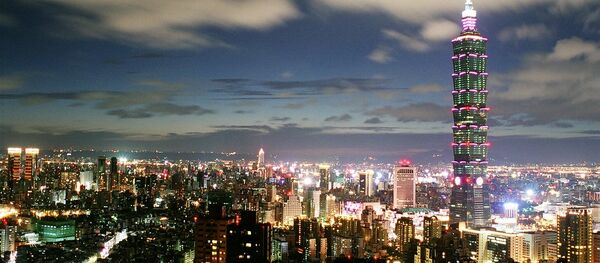Status as a Sovereign State
Following a similar move by Sao Tome and Principe in December, Panama’s defection to Beijing reduced the number of countries formally recognize the Republic of China (ROC) in Taiwan as a sovereign state to 20 globally.
Panama’s foreign minister Isabel Saint Malo de Alvarado traveled to Beijing and met with Chinese Foreign Minister Wang Yi to sign a joint communique, in which Panama recognizes that the Government of the People's Republic of China (PRC) is the sole legal government representing the whole of China, and that Taiwan is an inalienable part of China's territory.
Under the "One China" policy of the PRC government, countries with formal diplomatic ties with the PRC cannot recognize Taiwan as a sovereign state.
Taiwan's President Tsai Ing-wen accused China of engaging in "checkbook diplomacy" and stressed Taiwan’s status as a sovereign state in her address to the public in response to the news of Panama cutting diplomatic ties with Taiwan in favor of China.
"Although we have lost a diplomatic ally, our refusal to engage in a diplomatic bidding war will not change. The fact that the Republic of China exists will not change. This sovereignty cannot be challenged nor traded. China has continued to manipulate the "one China" principle and pressure Taiwan's international space, threatening the rights of the Taiwanese people. But it remains undeniable that the Republic of China is a sovereign country. This is a fact China will never be able to deny," Tsai said.
Tsai, a female leader from the Democratic Progressive Party in Taiwan, has been accused by Chinese authorities of trying to push for the "independence of Taiwan," which is a scenario that Beijing can never tolerate. Following its defeat in the Chinese Civil War in 1949, the Nationalist-led government of the ROC retreated to Taiwan, starting a standoff across the Taiwan Strait from the PRC until today.
Experts said the value of maintaining diplomatic relations with other nations served more of a symbolic purpose.
"It is important for Taiwan to assert the claim that it is a sovereign entity," Richard Bush, director of the Center for East Asia Policy Studies at the Brookings Institution in Washington, said.
Bush suggested that maintaining its status as a sovereign state can help Taiwan avoid being put in a situation similar to Hong Kong, which was returned to China by the United Kingdom in 1997 following a 99-year lease.
However, most of the 20 nations that keep diplomatic relations with Taiwan are small countries in Central America, such as Honduras, El Salvador, the Dominican Republic and Nicaragua, who have little economic power and rely heavily on financial aid from Taiwan.
Losing diplomatic ties with those countries will have little substantial impact on Taiwan politically or economically, experts said.
"Even if all its allies decided to sever diplomatic ties with Taiwan tomorrow, nothing will change all that much. The most important trade partners for Taiwan are still countries like the US and the UK," Colin Alexander, an assistant professor of political communications at Nottingham Trent University, who wrote a book about the relationship between Taiwan and Central America, said.
Official figures showed the United States and the United Kingdom accounted for about 13.3% of Taiwan’s exports in 2016, the most among its international trade partners excluding China and Hong Kong.
According to Alexander, only about 20% of the Foreign Ministry’s budget is allocated toward maintaining formal diplomatic ties with those smaller nations. He suggested that even without recognition from other countries, Taiwan has already fit all the criteria of being a sovereign state.
"Taiwan has every capacity of a sovereign state, such as a defined territory, an independent legal system, its own currency and its military," Alexander said.
Alexander recalled that the current way how a sovereign state is being recognized only started in 1945 when the United Nations was established. Since the establishment of the organization, a country’s sovereignty claim needs to be recognized by other countries. The ROC was a founding member of the United Nations and one of the five permanent members of its Security Council until 1971, when the PRC replaced the ROC as the sole legal representative of China.
Risk of Further Rift
Following the news of Panama cutting diplomatic ties with Taiwan, Ma Xiaoguang, spokesperson for the China’s State Council Taiwan Affairs Office, reiterated that Taiwan authorities led by Tsai’s Democratic Progressive Party are to blame for the deterioration of cross-strait relations.
"Our position on opposing the ‘independence of Taiwan’ and acknowledging the 1992 Consensus will not change. Following major changes in Taiwan’s political situation last year, this political foundation for peaceful progress of cross-strait relations has been destroyed. It is very clear who is trying to change the status quo," Ma said.
At the same time, Tsai accused Beijing of breaking the status quo of the cross-strait relations.
"Taiwan has already upheld our responsibility for maintaining cross-strait peace and stability. In contrast, China's actions have challenged the cross-strait status quo. This is unacceptable to the people of Taiwan. And we will not sit idle as our national interests are repeatedly threatened and challenged," she said.
Beijing’s move to further isolate Taiwan from the international community may give Taiwan authorities more reasons to move toward establishing Taiwan’s identity as an independent state, experts suggested.
"Taiwan still uses the constitution of the ROC, which claims sovereignty over both the mainland and Taiwan. But that is far removed from reality. It needs to be revised to represent the interests of Taiwanese," Chen Chih-chieh, an associate professor of National Sun Yat-sen University in Taiwan, said.
According to Chen, most of the young people in their 20s and 30s in Taiwan already do not consider themselves to be Chinese, both culturally and politically. Although their life cannot be separated from Chinese culture, they no longer identify themselves as being the same as Chinese from the PRC.
In her inauguration speech in 2016, Tsai also stressed the identity of being "Taiwanese," a first for presidents of Taiwan.
"Dear 23 million people of Taiwan: we shall all vow to be a Taiwanese who safeguards democracy, freedom, and this country," she said.
But Chen added that young people in Taiwan are also very pragmatic when dealing with China.
"Most of my students also understand that they may need to go to China for work after graduation. They feel a bit helpless that they may have to go to a place they don't like for work," Chen said.
Chen believes young people in Taiwan are far from being prepared to make that kind of sacrifice for independence.
"After living in peace for so long, most young people do not have any idea about what it’s like to go to the battlefield and face the enemies," the professor said.
Most Taiwan independence supporters hold the view that Taiwan would win in a conflict with China due to intervention from Japan and the United States, Chen added.




